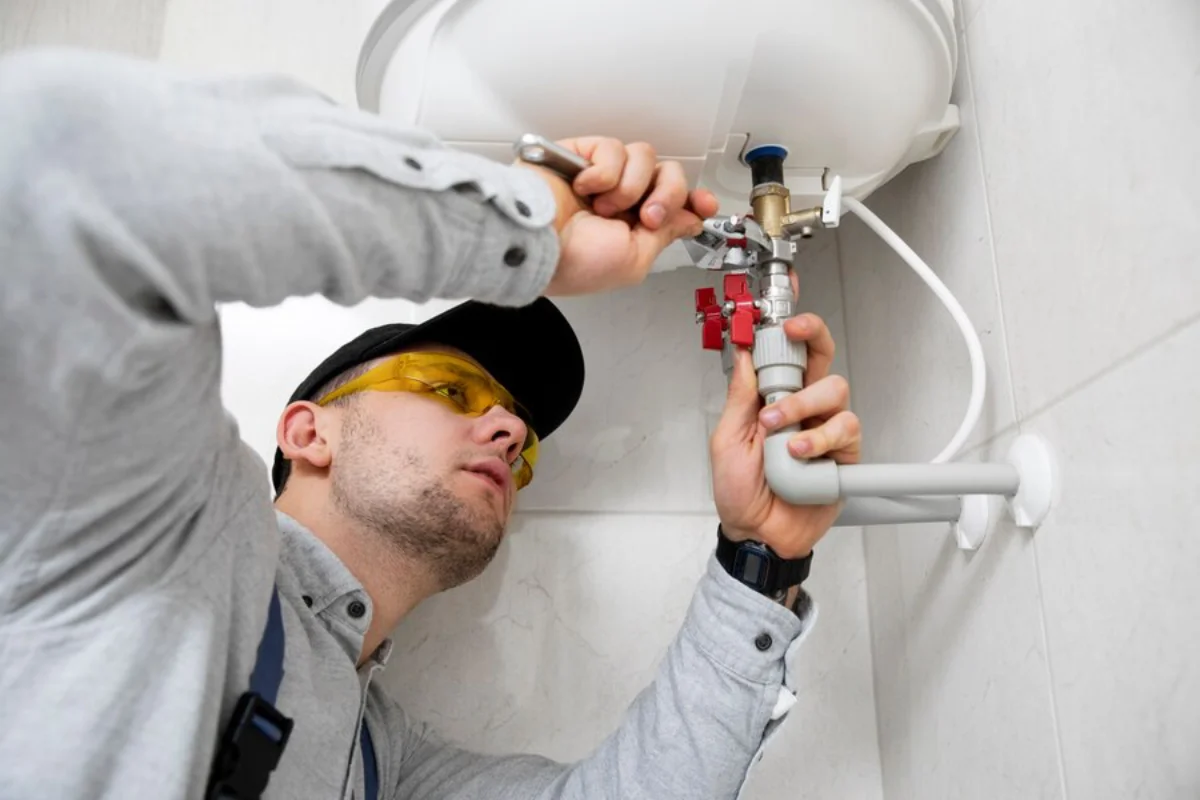Key Takeaways
- Regular plumbing inspections can prevent costly repairs and conserve water.
- Kitchen and bathroom drains require careful use and routine maintenance to remain clogged-free.
- Understanding when to seek professional plumbing services can save time and ensure safety.
- Seasonal care for pipes and learning about new technologies can extend the life and efficiency of your plumbing systems.
Maintaining a healthy plumbing system is critical to the overall well-being of your home. Like any intricate network, the plumbing system demands regular scrutiny and proactive care. Preventing issues before they occur not only spares householders from the inconvenience of sudden repairs but can also result in significant financial savings.
For those situations that escalate beyond the toolbox, seeking the expertise of a plumber, for example, can be the most prudent course of action. This depth of care ensures your home’s plumbing system remains reliable and efficient year-round.
The Importance of Regular Plumbing Inspections
Imagine catching a small leak before it becomes a major flood within your walls or floors. The value of regular plumbing inspections lies in such preemptive discovery. Routine assessments performed by a skilled plumber in Seattle, WA, can identify budding problems, providing opportunities for timely, cost-effective remedies.
Moreover, these evaluations can also shed light on possible improvements that increase water efficiency, ultimately conserving this precious resource and trimming utility costs.
Understanding Your Home’s Plumbing System
Becoming acquainted with your home’s plumbing layout grants you first-responder status in managing minor issues and understanding when to call reinforcements. Key knowledge points include locating the main water shut-off valve, monitoring water pressure levels, and knowing your system’s age and materials.
Signs such as damp cabinets, skyrocketing water bills, or a running toilet are not just mere annoyances but red flags that should prompt immediate investigation. When in doubt, consulting an authoritative source, such as a well-established guideline on water infrastructure, can be immensely helpful.
Preventive Measures for Clog-Free Drains
Drain clogs can be more than a minor hindrance, leading to severe problems like pipe corrosion or sewage backup. Simple preventive practices include discarding coffee grounds and leftover food in the trash, using sink filters, and conducting weekly baking soda and hot water flushes to maintain clear pipes. Furthermore, educate your household to prevent bathroom drains from becoming clogged with hair and soap scum by using drain guards, and swiftly address any slow draining to ward off bigger issues.
Tackling Hard Water and Mineral Buildup
Hard water is a common problem that, over time, causes scaling inside pipes, water heaters, and fixtures, diminishing their efficiency and lifespan. The first step is identifying the telltale white calcium and magnesium deposits on faucets and showerheads.
Water softening and filtration systems are long-term solutions that can prevent these minerals from accumulating, optimizing the performance and endurance of your plumbing. Regular descaling of kettles and coffee makers complements these measures, maintaining their function and water quality.
Seasonal Plumbing Concerns to Be Aware Of
Seasonal variations impact your plumbing system in varied ways. During winter, freezing pipes are a notorious problem. Prevent this by insulating pipes in exposed areas, sealing leaks that let cold air in, and maintaining a consistent thermostat setting. Conversely, during warmer months, the focus turns to outdoor plumbing. Check hoses, faucets, and irrigation systems for leaks or drips, ensuring they function correctly and efficiently, avoiding water wastage and unnecessary expenses.
When to Call a Professional
Do-it-yourself solutions are tempting but can lead to complications if overestimated. Know when to seek a professional’s help, especially when dealing with persistent clogs, low water pressure, unusual noises, or when considering upgrades.
Expert plumbers have the diagnostic tools, expertise, and the capacity to fix issues promptly and effectively, often saving money in the grand scheme. There’s peace of mind in knowing a skilled technician has mitigated any potential risks.
Advancements in Plumbing Technology
The world of plumbing is not impervious to technological evolution. Smart home water monitors, tankless water heaters, and touchless faucets are just some innovations setting new standards. Staying updated on these advancements can improve your home’s functionality and contribute to water and energy savings.
Water Conservation Efforts
Adopting a philosophy of water conservation within your home is both an environmentally and economically beneficial decision. Replacing worn washers, fixing leaking taps, and installing low-flow toilets and showerheads are simple yet effective steps.
Such actions are supported by data correlating household water conservation with utility savings, emphasizing the broader impact of individual conservation efforts.
Plumbing Maintenance Checklist
A plumbing maintenance checklist serves as an effective tool to circumvent common plumbing issues. Begin with routine tasks: checking for leaks, examining water pressure, and testing sump pumps, followed by seasonal examinations such as inspecting for pipe insulation integrity and outdoor system readiness. An annual review can involve a more comprehensive look at the household’s plumbing system.
Further Resources for Plumbing Information
Empowering yourself with plumbing knowledge fosters a more proactive approach to home maintenance. Beyond the immediate benefits, being an informed homeowner positions you to make wiser decisions regarding renovations and repairs. Online forums, homeowner’s associations, and workshops are excellent avenues to expand the plumbing knowledge base. Keeping up with trusted resources can provide engaging, helpful content that keeps you in the loop on best practices and innovative solutions.














